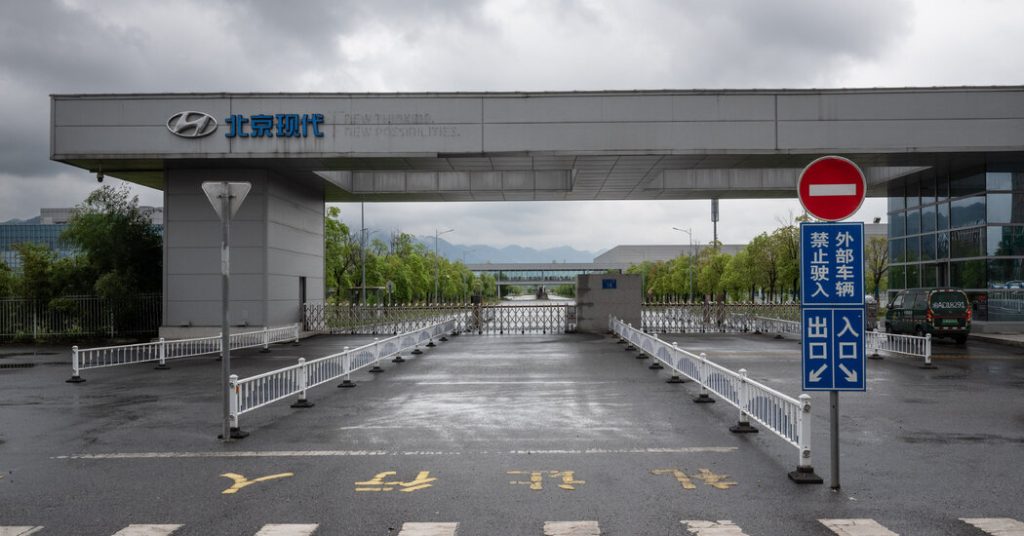In Chongqing, China, the former Hyundai manufacturing complex sits desolate, representing the country’s surplus of car factories. With over 100 factories able to produce nearly 40 million internal combustion engine cars annually, sales are declining as electric vehicles gain popularity. Last month, electric and plug-in hybrid car sales surpassed gasoline-powered cars in China’s largest cities, leading to many gasoline-powered vehicle factories operating at a fraction of their capacity or shutting down altogether. This shift to electric vehicles is part of a larger transition in China’s auto industry that could significantly impact the country’s economic growth and workforce.
China is emerging as a major exporter of cars, with three-quarters of its exported vehicles being gasoline-powered models that face declining demand domestically. This surplus poses a threat to producers elsewhere, while Chinese electric vehicle companies continue to invest in new factories and introduce more electric models. Despite growing electric car sales in China, there has been a slowdown in recent months due to reduced consumer spending. Overcapacity in electric vehicle manufacturing is also a concern, leading to price cuts and reduced profits for major companies like Tesla and BYD.
China’s transition to electric vehicles has resulted in the closure or reduced output of many gasoline-powered car factories, especially in inland cities like Chongqing where transport costs make exporting cars too expensive. The majority of China’s electric cars are assembled in newly built factories that qualify for subsidies, resulting in significant overcapacity in the industry. The decline in gasoline-powered car sales has prompted automakers like Hyundai to sell off facilities at a fraction of their initial cost, complicating the jobs dilemma faced by cities reliant on traditional automobile production.
Despite the shift towards electric vehicles, many Chinese manufacturers, often city-owned, have been hesitant to reduce output and cut jobs. Cities like Chongqing face challenges as the transition to electric vehicles requires fewer workers, potentially leading to unemployment for less skilled workers. While workers with technical backgrounds may find new job opportunities, others may struggle to find work. The closure of factories like Hyundai’s former complex signifies a changing landscape for China’s auto industry, with implications for both the domestic economy and global car producers.
While the auto industry in China is undergoing a revolution, there is still uncertainty regarding the long-term impact on the workforce and economy. The decline in gasoline-powered car sales and the rise of electric vehicles highlight the need for effective management of the transition. The shift to electric vehicles is expected to continue over the coming years, potentially resulting in further closures of traditional car factories. As China navigates this transition, the future of the auto sector will have significant implications for the country’s economic growth and workforce structure.


